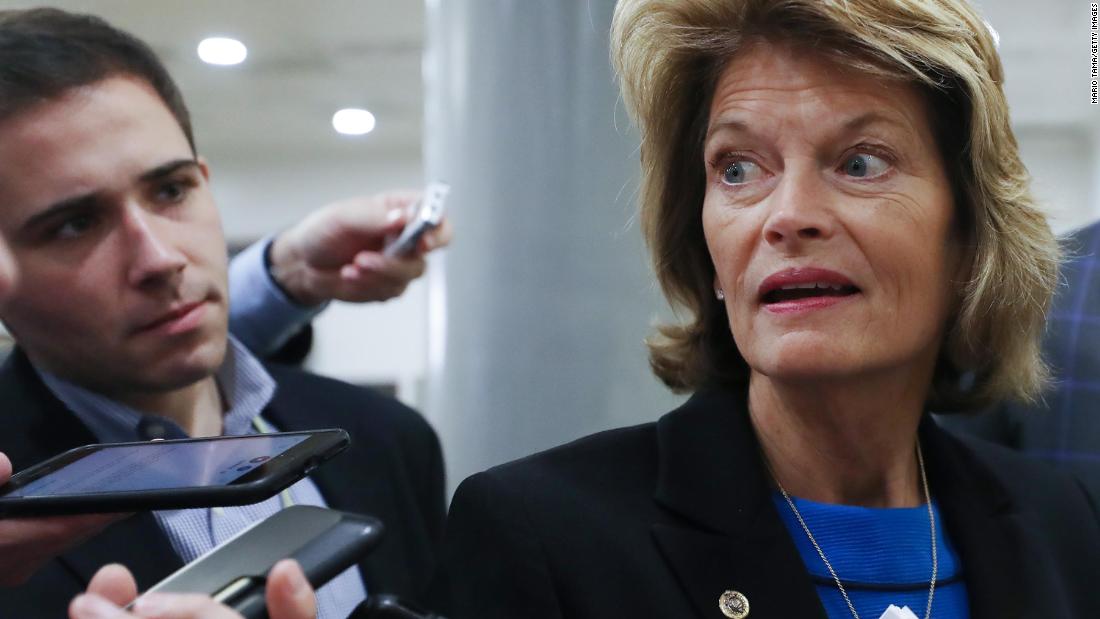
"For weeks, I have stated that I would not support taking up a potential Supreme Court vacancy this close to the election. Sadly, what was then a hypothetical is now our reality, but my position has not changed," the Alaska Republican said in a statement.
"I did not support taking up a nomination eight months before the 2016 election to fill the vacancy created by the passing of Justice Scalia. We are now even closer to the 2020 election -- less than two months out -- and I believe the same standard must apply."
Murkowski did not address whether she will oppose President Donald Trump's nominee in a lame-duck session if Joe Biden wins the presidency.
She joins another key GOP senator -- Susan Collins of Maine -- in her opposition to taking up whomever Trump nominates to replace the late Justice Ruth Bader Ginsburg's vacant seat before November 3.
Though Murkowski had stated her position on the matter prior to Ginsburg's passing, her statement Sunday underscores how precarious a position Senate Majority Leader Mitch McConnell could be in should other members of his party break ranks.
In a message to GOP senators Friday night, McConnell urged his colleagues not to lock themselves into a position and counseled them to be cautious about what they are telling the media about their views on how to process the nomination, according to a person who saw the note.
Senate Republicans, who hold the majority in the chamber, only need 51 votes to confirm a new justice once one is formally nominated. Currently, there are 53 GOP senators -- meaning they can only lose three Republicans before Vice President Mike Pence could cast a tie-breaking vote.
Should two more Republican senators also say they oppose movement on Trump's forthcoming nominee, Democrats will have enough support to punt the nomination to the lame-duck session.
Eyes are now on four key Republican senators who haven't yet publicly stated their positions on the timing for a vote: Cory Gardner of Colorado, Lamar Alexander of Tennessee, Chuck Grassley of Iowa and Mitt Romney of Utah.
In 2016, speaking about the Supreme Court vacancy created by the death of Justice Antonin Scalia, Gardner said the "next President ought to choose" his replacement, while Alexander, who is not running for reelection this year, said at the time that the debate wasn't about then-President Barack Obama's nominee to replace Scalia, but "about whether to give the American people a voice in the selection of the next Supreme Court justice."
Grassley, who chaired the Senate Judiciary Committee that declined to move on Obama's nominee in 2016, said at the time that "the American people shouldn't be denied a voice" in the matter. And though Romney had no comment for CNN on Saturday about whether Trump's nomination should wait, he has at times been at odds with the President, including when he became the lone Republican to vote to remove him from office earlier this year.
This story has been updated with additional background information and context.
"day" - Google News
September 21, 2020 at 01:47AM
https://ift.tt/33HKEap
Key GOP senator says she opposes taking up a Supreme Court nomination before Election Day - CNN
"day" - Google News
https://ift.tt/3f7h3fo
https://ift.tt/2VYSiKW
Bagikan Berita Ini















0 Response to "Key GOP senator says she opposes taking up a Supreme Court nomination before Election Day - CNN"
Post a Comment